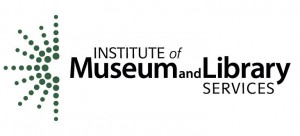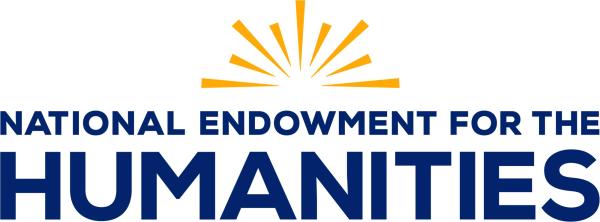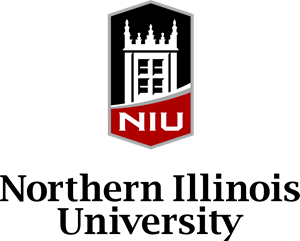With deep gratitude and open hearts, we share the final outputs of a collective journey.
We are proud to announce the release of two major publications from the Digital POWRR Peer Assessment Program, a multi-year initiative funded by the Institute of Museum and Library Services. This project was born out of a shared belief: that digital preservation work doesn’t just require technical tools—it requires community, reflection, care, and support.
Over the past four years, we’ve had the immense privilege of working alongside a dedicated and thoughtful group of practitioners from across the country. Together, we explored what it means to do digital stewardship work in often under-resourced and emotionally complex environments. We built trust, shared challenges, celebrated small victories, and created space for each other to learn and grow.
Today, we’re thrilled to share the culmination of that work in two openly available resources:
White Paper
This report offers an in-depth look at the program’s design, participant outcomes, and key recommendations for funders, administrators, and future implementers. It also introduces a new assessment framework—Navigating Uncertainty: A Human-Centered Assessment Compass for Digital Preservation Practitioners—which centers emotional resilience, relational dynamics, and the everyday realities that shape digital stewardship.
Case Study Volume
Digital POWRR Peer Assessment Program Participant Case Studies
This companion volume features 25 case studies authored by program participants, offering candid, grounded insights into their institutional contexts, challenges, and progress. These stories reflect a broad cross-section of libraries, archives, museums, and community organizations—documenting how participants applied assessment tools, navigated local constraints, advocated for resources, and began implementing practical, sustainable digital preservation strategies.
These publications are more than reports—they are a reflection of the vulnerability, persistence, and brilliance of the people who shaped this work. To all of the participants who brought their full selves to the program, and to the mentors, advisors, and collaborators who offered guidance along the way: thank you. Your insights, labor, and generosity made this possible.
With appreciation, we acknowledge our full project team:
Project Director / Principal Investigator
Stacey Jones
Project Advisors
Jaime Schumacher
Jay Gattuso
Frances Harrell
Cohort Mentors
Carol Kussmann
Kyle Henke
Danielle Taylor
Sam Meister
Alexis Braun Marks
Nick Krabbenhoeft
External Evaluator
Stephanie Gerding
Guest Case Study Speakers
Patrick Wallace
Matt Ransom
Partner Organizations
Northwest Archivists, Inc.
Association of Hawaiʻi Archivists
Amigos Library Services
Sustainable Heritage Network
Midwest Archives Conference
Program Participants
Phase 1 – Participants
Cohort 1
• Brieanah Gouveia (Hawaiʻi State Judiciary – King Kamehameha V Judiciary History Center)
• Gailyn Bopp (Brigham Young University – Hawaiʻi)
• Sharnelle Renti Cruz (Hula Preservation Society)
• Tom Bliss (Outwords Archive)
• Felecia Moore (LaGrange College)
• Jane Fiegel (Tulane University)
Cohort 2
• Kristen Parr (Confederated Tribes of the Umatilla Indian Reservation – CTUIR)
• Megan Garbett-Styger (Point No Point Treaty Council)
• Emily Johns (Pacific University)
• Amanda Demeter (Tacoma Community College)
• Andrea Floersheimer (Chugachmiut Tribal Archives)
• Joan Hua (Friends of KEXP)
Cohort 3
• Amy Moorman (Avila University)
• Kristin Clark (Texas Woman’s University)
• Tara Zachary Laver (The Nelson-Atkins Museum of Art)
• Rebecca Benson (Missouri Botanical Garden)
• Casey Westerman (Agnes Scott College)
• Hannah M. Abelbeck (New Mexico History Museum – State of New Mexico)
Phase 2 – Participants
Cohort 1
• Katrina Thompson (Northwest American Indian Coalition, Inc.)
• Rhonda Jones (Alabama African American Civil Rights Heritage Sites Consortium)
• Tia Stenson-Cunningham (Deadwood History, Inc.)
• Kristy Rawson (Chicago Dance History Project – CDHP)
• Daniella Aquino (Diocese of Orange)
• [Name Withheld] (Racine Sisters of Saint Dominic)
Cohort 2
• Jaycie Vos (University of Northern Iowa)
• Doreen Dixon (Drake University)
• Wendy Guerra (University of Nebraska at Omaha)
• Lee Dotson (University of Central Florida)
• Sarah Young (Kirkwood Community College)
• Alexis Heywood (Hagerstown Community College)
Cohort 3
• Sara Bennett (Champaign County Historical Archives)
• Amber Passen (Bartholomew County Public Library)
• Joyce Homan (Cambria County Library)
• Kristin Pearson (Bristol Public Library)
• Bianca Sosa-Phal (La Historia Historical Society Museum)
• Lisa Geiger (College of Physicians of Philadelphia – Mütter Museum and Historical Medical Library)
We hope these resources serve as a guide—and a reminder—that even in uncertain times, community-centered models of care and collaboration can build powerful, lasting change.
Please feel free to explore, share, and build on this work.




